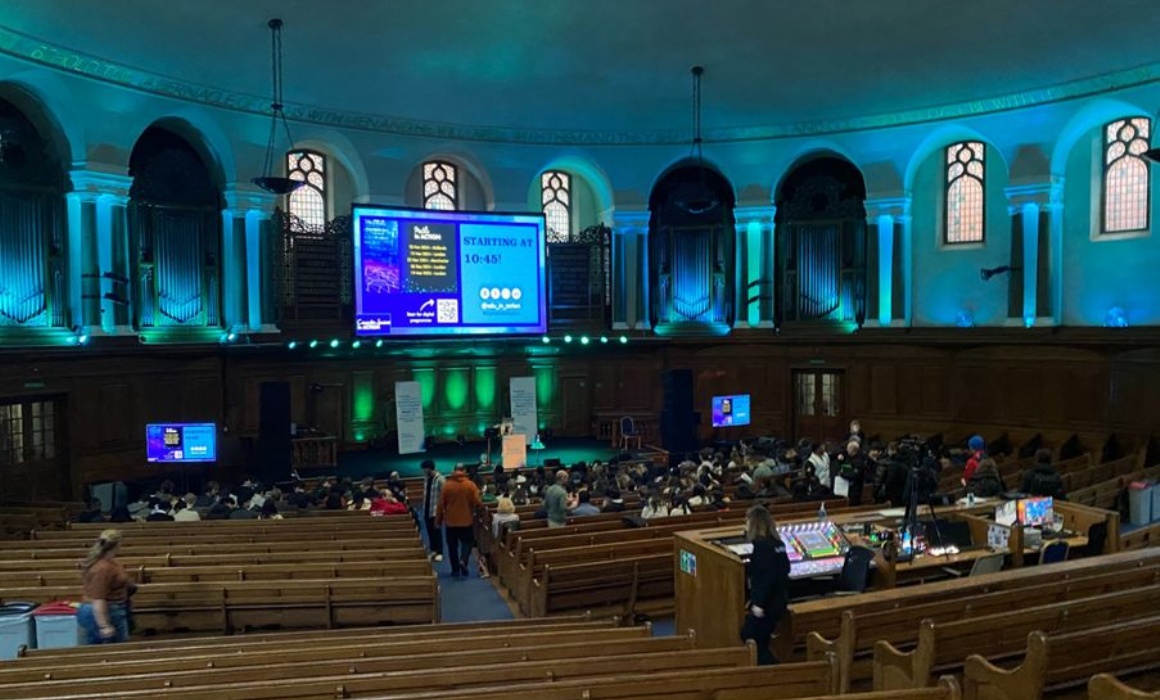Computer Science
Computer Science is a highly practical and creative subject where students apply academic principles to real-world systems. It blends invention with analytical thinking, encouraging learners to explore the natural and digital worlds through a technological lens. We recognise the importance of equipping our young people with essential digital skills that will prepare them for the rapidly evolving future.
Our department is exceptionally well-resourced. All computers run the latest industry-standard tools and software, supporting a wide range of programming languages such as Python and Visual Basic. Every classroom features an 85" interactive display, and students have access to a 3D printer and programmable robotic kits. This specialist equipment allows pupils to bring their code to life, deepening their understanding of programming through hands-on experience.
Our experienced teachers make learning engaging, accessible, and relevant — linking theory with practical application and showing students the real-world impact and opportunities that Computer Science offers.
We use online platforms to enhance students’ learning in both programming and theory. These tools provide interactive coding environments, instant feedback, and self-paced challenges that reinforce classroom learning. This blended approach helps students build confidence, independence, and a deeper understanding of Computer Science concepts.
There is a growing global demand for skilled programmers and problem solvers. Those who study Computer Science open doors to exciting, lucrative, and continually evolving career paths in technology and beyond.
Key Stage 3
Year 7
Students begin their Computer Science journey by exploring how to use technology safely and responsibly while building foundational digital skills.
Topics include:
- Using Computers Safely
- 3D Design
- Flowol & Flow Charts
- Spreadsheets
Year 8
Students develop their technical and creative abilities through design, programming, and digital media projects.
Topics include:
- Touch Typing
- Graphics & Image Manipulation
- Python Turtle
- Multi Media presentations
Year 9
In Year 9, students deepen their understanding of advanced computing concepts and prepare for GCSE Computer Science.
Topics include:
- Crime & Cyber Security
- AI & Machine Learning
- Understanding Computer Systems
- Python Programming
I enjoyed learning programming in Visual Basic and Python.
Ethan
Courses offered:
GCSE Computer Science
GCSE Computer Science gives students a real, in-depth understanding of how computer technology works and the opportunity to take a look at what goes on "behind the scenes". This course provides excellent preparation for higher study and employment in Computer Science and allows students to develop critical thinking, analysis and problem-solving skills. Students will acquire the skills to design, write and test computer programs such as Python or Visual Basic, and look at the development of computer technology and the effects it has had on the world around us.
Students will:
- Dive into the essential principles of Computer Science, exploring exciting concepts like algorithms, logic, and data representation that power the digital world.
- Sharpen problem-solving skills by designing, coding, and debugging real programs, gaining hands-on experience in tackling complex challenges.
- Cultivate a creative, innovative, and analytical mindset, thinking like a true computer scientist.
- Discover how digital systems work and interact, uncovering the hidden networks that connect our devices and technologies.
- Explore the impact of digital technology on individuals and society, gaining insight into its transformative role.
- Apply practical math skills in engaging ways that bring Computer Science to life.
This course is designed for those ready to see, create, and think differently about technology!
A Level Computer Science
The qualification will focus on programming and emphasise the importance of computational thinking as a discipline. It will also have an expanded focus on maths, much of which will be embedded within the course.
The course is structured around the following topics:
Computer Systems
- Characteristics of contemporary processors
- Software and its development
- Types of Programming Languages
- Data Types, Representation and Structures
- Exchanging Data and Web Technologies
- Following Algorithms
- Using Boolean Algebra
- Legal, Moral and Ethical Issues.
Algorithms & Programming
- Elements of Computational Thinking
- Programming and Problem Solving
- Pattern Recognition, Abstraction and Decomposition
- Algorithm Design and Efficiency and Standard Algorithms
Programming Project
The learner will, with the guidance of a teacher, select their own user-driven problem of an appropriate size and complexity to solve. This will demonstrate the skills and knowledge necessary to meet the Assessment Objectives. Students will need to analyse the problem, design and implement the solution and give a thorough evaluation.
Enrichment
Our Computer Science Clinic invites students to work on coursework and programming projects outside of lesson time. Lego Robotics Club students can build and test their own Lego robots. A highlight for students is the International Enrichment trip, which includes a visit to San Francisco.
Mr Ben Monk
Head of Computer Science
Computer Science News
Computer Science in Action Trip Features Discussions on AI and Coding


